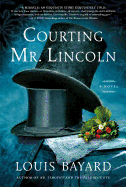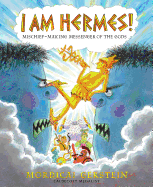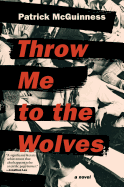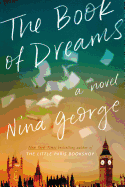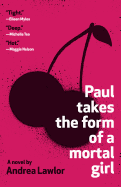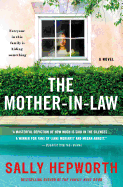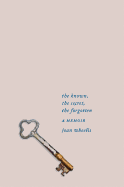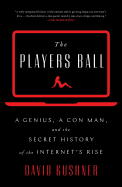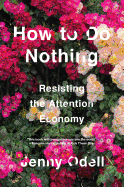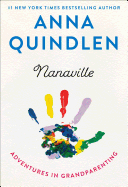Tuesday, April 23, 2019
William Shakespeare is believed to have been born on April 23, the same date on which he died 52 years later, though some say his birthdate is unknown. The Bard's fans may disagree on the date of his birth or which of his plays is their favorite, but one thing most agree on is that Hamlet was his major work.
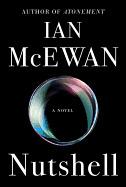 By far the most ambitious reimagining of Hamlet to date is from master storyteller Ian McEwan. In Nutshell (Anchor, $16), a third-trimester fetus listens as his mother Trudy and Uncle Claude plot to murder the fetus's father, John. They want to cash in on John's derelict old house situated on prime London real estate. McEwan takes Hamlet's sense of helplessness to a whole new level with this remarkably clever adaptation.
By far the most ambitious reimagining of Hamlet to date is from master storyteller Ian McEwan. In Nutshell (Anchor, $16), a third-trimester fetus listens as his mother Trudy and Uncle Claude plot to murder the fetus's father, John. They want to cash in on John's derelict old house situated on prime London real estate. McEwan takes Hamlet's sense of helplessness to a whole new level with this remarkably clever adaptation.
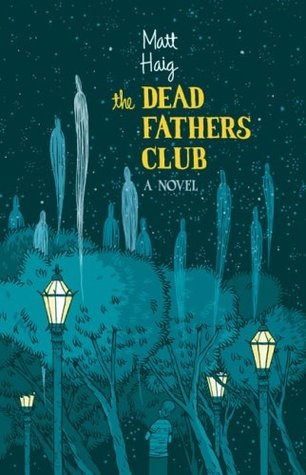 What if Hamlet were an 11-year-old boy too preoccupied with middle-school distractions seriously to contemplate revenge for his deceased father? Instead of a castle, Matt Haig's The Dead Fathers Club (Penguin, $15) is set in an English pub called the Castle and Falcon, and offers a comically entertaining version of events while staying true to the original play.
What if Hamlet were an 11-year-old boy too preoccupied with middle-school distractions seriously to contemplate revenge for his deceased father? Instead of a castle, Matt Haig's The Dead Fathers Club (Penguin, $15) is set in an English pub called the Castle and Falcon, and offers a comically entertaining version of events while staying true to the original play.
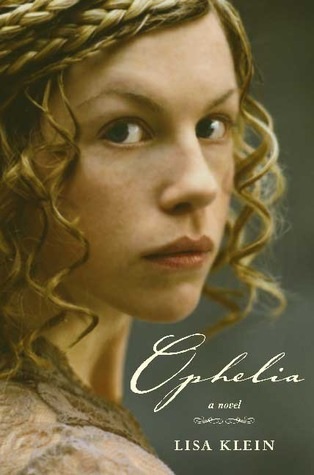 If you want to read the story of Hamlet from Ophelia's perspective, look no further than Lisa Klein's young adult novel Ophelia (Bloomsbury, $9.99), written from the point of view of a rebellious, willful young lady-in-waiting to Queen Gertrude. Klein's Ophelia marries her prince and gives the kingdom of Elsinore a run for its money.
If you want to read the story of Hamlet from Ophelia's perspective, look no further than Lisa Klein's young adult novel Ophelia (Bloomsbury, $9.99), written from the point of view of a rebellious, willful young lady-in-waiting to Queen Gertrude. Klein's Ophelia marries her prince and gives the kingdom of Elsinore a run for its money.
And you'll only have to hold on a few years for Gillian Flynn's version of Hamlet, part of the Hogarth Shakespeare Project that asks authors to rewrite Shakespeare's plays for a contemporary audience. Knowing Flynn's work, it will be worth the wait. --Shahina Piyarali, writer and reviewer
Throw Me to the Wolves
by Patrick McGuinness
After a young woman is found strangled by the River Thames, Michael Wolphram, who was an English and music teacher at an elite boarding school until his retirement, is hauled into the police station: he is the dead woman's neighbor and her DNA has been found in his car. Even before the police charge him, a bloodthirsty tabloid journalist uses Wolphram's eccentricities to hang him in the court of public opinion.
Throw Me to the Wolves is primarily narrated by Prof, a middle-aged detective who realizes that he knew Wolphram almost 30 years earlier. (Author Patrick McGuinness shrewdly waits a bit to reveal the particulars of their introduction.) Prof wonders how long he can withhold this information, which could compromise the investigation, and how long it will be before Wolphram recognizes him.
Dispersed throughout the novel are scenes from the perspective of a boy who was Wolphram's student. The man's impassioned teaching style spoke to the lad, and to several other young outcasts at the school, which made a habit of punishing the unmoneyed and the unconnected.
McGuinness, a poet and the author of a previous novel, The Last Hundred Days, which was longlisted for the Man Booker Prize, takes a double-barreled approach to his first police procedural: it's also a canny evisceration of the media's noxious salaciousness. As Prof puts it, "You take sexual shame and sexual frustration, you top it up with wealth, hierarchy, and mental and physical violence, then serve it in a large glass called entitlement, and you get... well: you get what we have." And you get this fine novel. --Nell Beram, author and freelance writer
Discover: Patrick McGuinness's police procedural doubles as a wily takedown of tabloid culture.
Courting Mr. Lincoln
by Louis Bayard
With wit and charm that only Louis Bayard (Roosevelt's Beast) can deliver, Courting Mr. Lincoln transports readers to 19th-century Springfield, Ill., to view both the romance of Abraham Lincoln and Mary Todd and the intimate friendship of the future president and a dry-goods merchant named Joshua Speed.
Elizabeth Todd Edwards is determined to find her sister Mary Todd a husband, so she summons Mary to Illinois from their childhood home in Lexington, Ky. Daughters of a wealthy banker, both women are educated and accustomed to refinement. In Elizabeth's eyes, the poor, unpolished country lawyer with political aspirations is far from a suitable match for Mary. And at first Mary takes little notice of Lincoln, but after repeated social encounters with him, she gets to know the mind and heart inside the gangly, mannerless man.
When Lincoln first arrives in Springfield, he is saddled with debt and asks the proprietor of a small store to recommend inexpensive lodging. He's offered a room above the store, but he must share it with the storeowner, Joshua Speed. Speed is the son of a wealthy farmer who is searching for his life's purpose. He finds it in his relationship with Lincoln. In addition to providing him a place to hang his hat, Speed educates Lincoln on the ways of gentlemen.
With Mary and Speed both vying for Lincoln's affection, it doesn't take long for conflict to arise. Those familiar with Bayard's work will appreciate his sterling dialogue and ingenious humor. When that all comes together, Courting Mr. Lincoln is Bayard at his absolute best as one of the nation's greatest literary gems. --Jen Forbus, freelancer
Discover: The making of the 16th U.S. president as seen through the eyes of his future wife and his best friend, who view each other as adversaries in a fight for the young lawyer's heart.
The Book of Dreams
by Nina George
In The Book of Dreams, Nina George continues to explore love, life and mortality. With a similarly luminescent quality as its predecessors--The Little Paris Bookshop and The Little French Bistro--The Book of Dreams shines light into the hidden spaces of each character's soul. The living make life-altering decisions while the almost dying experience alternate paths, showcasing what life could have been.
Sam, Henri, Eddie, Maddie: four lives converge at London's Wellington Hospital. Sam and Eddie are there visiting. Henri and Maddie are patients in comatose states. All four are living double lives. Sam skips school to spend time with the father he never knew and the girl he's falling in love with. Eddie hides her daily visits to Henri--her secret heartbreak, the former love of her life--from her current partner.
Henri and Maddie are both trapped in dreams. Henri is trying to find his way back to life (but which version of life being shown to him is real?), while Maddie is too scared to move forward.
Quietly meditative and exquisitely plotted, there is nonetheless a feeling of urgency to the story, as the days pass with each turning of the page, making it less and less likely that Henri or Maddie will find their way back to consciousness. By the final chapters, a lyrical crescendo is building, leading to a dramatic conclusion and a graceful coda, so that, like life, there is no guarantee of a happy ending, yet no one is left bereft at the end of the tale. --BrocheAroe Fabian, owner, River Dog Book Co., Beaver Dam, Wis.
Discover: Four lives intertwine, relationships are formed and love explored in this novel about life, death and everything in between from the author of The Little Paris Bookshop.
Paul Takes the Form of a Mortal Girl
by Andrea Lawlor
It's 1993, and by all appearances, Paul Polydoris is having the time of his life. He's a bartender at the only gay club in Iowa City, immersed in the college town's queer scene. He makes zines, has perfected the art of the mix tape and can have any man he wants--and usually does. "Why did people think Paul was so strange, so easy, so lucky?" the author wonders. "He wasn't. He was just willin', like Linda Ronstadt." But there's one thing in Paul's arsenal that few people know: he's a shapeshifter who can change gender at will.
Paul Takes the Form of a Mortal Girl follows Paul on a genderqueer odyssey across America. He changes into Polly and joins his best friend Jane at a Womyn's Music Festival in Michigan where he meets Diane, an animal rights activist. The intense sexual chemistry they share is matched by their love for each other. Together, they go to Provincetown, but it all falls apart; heartbroken, Polly changes back to Paul and takes off for San Francisco to start over. Old habits die hard as Paul struggles to come to terms with the things he's deftly avoided in his young life so far: connection, stability and identity.
In Paul/Polly, Andrea Lawlor has created a character who is both supernatural and completely familiar and accessible. Paul's quest for intimacy is universal, and his sexual prowess across the gender spectrum blurs the lines of masculinity and femininity. Infused with magical realism, panache and healthy doses of sex, Lawlor delivers a wild coming-of-age tale that will leave readers breathless. --Frank Brasile, librarian
Discover: A shapeshifter who can change his gender on demand strives for connection among the sexual conquests in this genre-bending debut.
The Mother-in-Law
by Sally Hepworth
Lucy, who lost her mother as a teenager, had hoped that when she and Ollie got married, his mother, Diana, would warm to her. But Diana has always kept Lucy at arm's length, much to Lucy's disappointment. Resigned to her standoffish mother-in-law, Lucy is nevertheless shocked when the police show up at the door of Lucy and Ollie's home to tell them that Diana is dead. Diana had recently informed Ollie and his sister, Nettie, of her breast cancer diagnosis, and a note found in Diana's desk seems to imply that she chose suicide rather than a cancer battle.
But then the autopsy reveals that she did not in fact have cancer. The police keep coming around, hinting that perhaps her death was not actually suicide. As the investigation unfolds, and the secrets of young Diana are told, Lucy gets caught up in the story that Diana spent so much of her life trying to hide from her children.
Sally Hepworth (The Things We Keep, The Family Next Door) has delivered a delightfully twisty domestic suspense novel in The Mother-in-Law. Hepworth does a remarkable job showing the misunderstandings between Lucy and Diana through each woman's eyes, and will keep the reader on tenterhooks to find out exactly how and why Diana died. Fans of Big Little Lies and Then She Was Gone will love the startling end of The-Mother-in-Law. --Jessica Howard, bookseller at Bookmans, Tucson, Ariz.
Discover: In this surprising domestic suspense novel, a woman discovers the secrets behind her mother-in-law's apparent suicide.
Biography & Memoir
The Known, the Secret, the Forgotten: A Memoir
by Joan Wheelis
The Known, the Secret, the Forgotten is a memoir of Joan Wheelis's unusual, comfortable childhood growing up as the only child of distinguished psychoanalysts in midcentury San Francisco. Told from a vantage point 50-plus years in the future, Wheelis's recollections have a dreamlike quality--misty, distant, but shot through with immediate, vivid details and symbolic suggestion. Her narrative favors impressions and themes over chronology, shifting from scene to scene, memory to memory, without concern for sequential plotting. One moment she's six years old and puzzling over the "endlessly intriguing" mystery of her parents' work, which they both conducted from Wheelis's home; the next, she's having an existential conversation with her elderly father as they watch the Blue Angel jets fly over the Presidio.
Wheelis only briefly alludes to her life in between those early years and the near-present--becoming a psychoanalyst herself, having a son, her husband leaving her. The absence of most of her life from this narrative suggests a strong link between her earliest memories and who she is today.
The link between the two time periods is her parents' legacy, particularly her father's. Wheelis paints him as an exacting, disciplined man of rigorous intellect and scrupulousness who nonetheless imparted her with a certain zeal for living. The paradoxical remoteness and intimacy of their relationship, and her memory of how it evolved over time, is the cornerstone of the book. Fittingly, Wheelis later describes memory as "the rich layering of time and experience. Built like a stone wall"--one that, eventually, like all things, wears down and falls away. --Hannah Calkins, writer and editor in Washington, D.C.
Discover: Poetic and reflective, this spare but evocative memoir is a lovely meditation on time, memory and generational legacies.
Business & Economics
The Players Ball: A Genius, a Con Man, and the Secret History of the Internet's Rise
by David Kushner
Thirty years ago, searching for a love connection was largely limited to scouring personals in the newspaper. Those looking for something with less commitment had pornographic magazines or VHS tapes for immediate gratification. But by the mid-'90s, the Internet forever changed how people look for love and satisfied lust, thanks to the foresight of two pioneers whose similarities were equaled by their hatred for each other.
In The Players Ball, David Kushner (Alligator Candy) recounts the battle for sex on the Internet during its infancy. Gary Kremen founded Match.com and invented online dating by bringing classified ads online. Recognizing the potential, Kremen bought other domains, including Sex.com, to use in the future. Within a few years, Kremen was dismissed from the company he founded. Adding insult to injury, he discovered that a con artist named Stephen Michael Cohen had claimed ownership of Sex.com. Cohen used fake letterhead and falsely claimed that Kremen no longer owned the domain; Cohen convinced domain registrar Network Solutions that he was the new owner, allowing him to earn tens of millions of dollars a year. A cat-and-mouse game ensued as an obsessed Kremen pursued Cohen, who routinely taunted Kremen.
Kushner's multifaceted portrait of the two men shows that the tenacious Kremen and the shameless Cohen shared much in common. Both had a grudging respect for each other, despite years of legal battles during the "anything goes" mentality of the nascent technology. Kushner's take on this chapter in Internet history is compulsively readable and always entertaining. --Frank Brasile, librarian
Discover: The Players Ball tells the story of the epic battle for ownership of Sex.com during the Internet's early years.
Social Science
How to Do Nothing: Resisting the Attention Economy
by Jenny Odell
Jenny Odell is an artist who teaches at Stanford University and, like most people in the 21st century, she feels the relentless pull of digital technologies on her already busy life. Targeted advertising, social media, personal brands, the gig economy: these modern manifestations demand attention often to the detriment of their participants, she argues. "In an endless cycle where communication is stunted and time is money, there are few moments to slip away and fewer ways to find each other." How to Do Nothing, however, goes beyond the notions of unplugging and retreat--exercises so often designed to spur greater productivity upon returning. Instead, Odell encourages readers to slow down and cultivate a sense of attention that prioritizes the physical realm.
What makes Odell's approach so appealing is that she recognizes that wholesale permanent retreat is unrealistic; it often neglects a person's responsibility to the world of digital interaction, such as keeping in touch with friends and relatives. Instead, her argument strives for balance, subverting the capitalistic drive of productive content creation by questioning the very terms of its demands. To that end, she draws heavily on Bartleby, the Scrivener, famously declaring, "I would prefer not to." Add to this the finely tuned attentiveness in David Hockney's art, the careful work of Hannah Arendt and a full palette of other brilliant creators, and How to Do Nothing emerges as a lush, sensible argument for balance in an unrelenting world. Furthermore, Odell grounds her work in the natural splendor of her home in the Bay Area. From what better vantage could a writer critique the fallout of Silicon Valley's Internet Age? --Dave Wheeler, associate editor, Shelf Awareness
Discover: A Bay Area artist considers the best practices in resisting the onslaught of digital influences on modern lives.
Psychology & Self-Help
Everything in Its Place: First Loves and Last Tales
by Oliver Sacks
The late neurologist and prolific author Oliver Sacks (Awakenings; The River of Consciousness) crafted a series of essays as varied as they are wise in Everything in Its Place: First Loves and Last Tales. At their core is a section devoted to "clinical tales" in which Sacks discusses freely, and always with a deep sense of humanity, several patients and their neurological disorders that fascinated him. In "Seeing God in the Third Millennium," Sacks explores out-of-body and near-death experiences, respecting the personal meaning of such experiences while attempting to ground them in the physical realities of the brain. In "The Seduction of Madness," he chronicles manifestations of bipolar disorder and the heightened mania that can become a drug for those who experience feelings of superhuman ability.
Sacks's sense of wonder permeated his life, evidenced by the two sections bookending his clinical tales. The first is composed of boyhood reminiscences. He describes his youthful affinity for swimming and for libraries and museums, and how he fell in love with science. The last section of the book is written from the perspective of old age, in which those same loves have matured and directed his interest even more outward toward the mysteries of the world. These later essays are full of curiosity and awe.
Whether discussing botany or the intricacies of the brain, Sacks writes with the natural candor and wisdom of a great teacher. Everything in Its Place is his thoroughly illuminating last word. He will be missed. --Scott Neuffer, writer, poet, editor of trampset
Discover: Famous neurologist Oliver Sacks details his adventures with the mind and the greater natural world in this posthumous collection of essays.
Parenting & Family
Nanaville: Adventures in Grandparenting
by Anna Quindlen
Welcome to Nanaville, Anna Quindlen's newest address. The prolific chronicler of American family life--in columns, nonfiction (Lots of Candles, Plenty of Cake) and novels (Alternate Side)--shares her latest chapter: grandparenting. "I am the mayor of Nanaville, and I vow to carry out my duties well," Quindlen declares in this joyous memoir when her son's son is born.
Two tropes she debunks are that the grandparent and child have a "common enemy" and that spoiling is her role, "which casts Nana not as the bad cop and not even as the good cop but as the getaway driver." Baby Arthur is born into a loving extended family, there's no doubt. Quindlen writes warmly about her son, who "puts his own concerns and needs aside to minister to this little boy" and her daughter-in-law who replied, "Of course," when she first asked to hold the child, "signaling right at the start where I stood." She recognizes her role does not include giving unsolicited advice. The "two commandments of Nanaville: love the grandchildren and hold your tongue."
Describing her large Irish Italian family (her grandparents had 32 grandchildren!), Quindlen reflects on cultural changes. When she was a girl, a "mixed marriage" was between a Catholic and a Lutheran. She cheers "the arc of progress" Arthur represents; his mother is Chinese, and his grandparents eagerly study Mandarin to talk with him in both of his languages.
Thoughtful and often hilarious (including variations on the title "grandma"), Nanaville is a delight for women of any generation. --Cheryl Krocker McKeon, manager, Book Passage, San Francisco
Discover: In this memoir, prolific novelist and essayist Anna Quindlen shares the joy of grandparenting.
Children's & Young Adult
You'd Be Mine
by Erin Hahn
Debut author Erin Hahn's You'd Be Mine is a YA romance that uses all the trappings of the genre to build an engrossing, moving story about addiction, emotional health and fame, with a whole lot of fun and romance thrown in.
Clay Coolidge is an 18-year-old pop-country sensation whose label, SunCoast Records, is sick of his bad boy "f*ckery." They've given him an ultimatum: convince Annie Mathers to join his tour or lose his contract. Annie is the child of country stars so giant, she "thought Willie Nelson was [her] actual grandpa until [she] was ten." Four years ago, she lost both parents to a "double-suicide" and has been "hiding out in Michigan" at her grandparents' home ever since. Now 17, Annie is slowly coming out of hiding, and SunCoast--the label that originally signed her mother, Cora--desperately wants "to have the pair."
Of course, Annie with the "smoky vocals" agrees to open for Clay with the "whiskey voice," and a relationship develops. But their time together isn't just a sexy, summer romp. (Though it is that, too!) Hahn's protagonists are complicated, whole individuals who realistically deal with the rapid maturing that comes with being famous at a very young age. Annie loves performing but is terrified of becoming her drug-ruined mother; she wants Clay but refuses to love someone who's so like her dad. Clay, too, is complex. Much of this novel centers on addiction, and Hahn's depiction of Clay's slow, painful acknowledgment of his alcoholism reads devastatingly true. You'd Be Mine perfectly balances the brutal with a lot of beautiful and shines with good humor, Southern sensibilities and a great love of music. --Siân Gaetano, children's and YA editor, Shelf Awareness
Discover: Two talented young country singer/songwriters embark on a summer tour that sets them on tracks neither expected.
I Am Hermes!
by Mordicai Gerstein
Oh, that Hermes: we always knew he was mischievous. But in I Am Hermes!, Mordicai Gerstein's comics-style autobiography of sorts, it's clear that as a kid, the messenger of the gods was a pest of Olympian proportions.
With the help of dialogue balloons, Hermes narrates his own adventures, starting with events from his devilish infancy and toddlerhood. The baby-talking trickster takes delight in sneaking out of his cradle and stealing the cows belonging to his older brother Apollo. When Apollo rats out the brat to their dad, Zeus tells his younger son that it's time to grow up, which Hermes literally does before his eyes: "How's this?" Zeus anoints him on the spot: "You'll deliver messages, some in the form of dreams, to everyone." In the latter part of I Am Hermes!, the wing-sandaled one sets out to rescue Ares, god of war, who has been captured by Poseidon's twin sons; later, he disguises himself as a goatherd to get to know the crush-worthy mortal maiden Penelopeta, who becomes his bride.
Gerstein, author of the 2004 Caldecott-winning The Man Who Walked Between the Towers, has a flair for the comics-style format, which he tested in I Am Pan! Although chockablock with panels, the tidy layouts can accommodate banter and sight gags (an oblivious snail, when Apollo asks it about his cows' whereabouts: "I was inside all morning, housecleaning"). To aid the reader unfamiliar with the book's mythological cast of characters, I Am Hermes! begins with a pseudo team picture in which the gods and goddesses pose above their IDs; several look like good candidates for a starring role in another Gerstein book. Here's hoping there's one forthcoming. --Nell Beram, freelance writer and YA author
Discover: This winning middle-grade, comics-style look at Hermes, messenger of the gods, capitalizes on the humorous aspect of his troublemaking.
| Advertisement Meet belle bear! |


